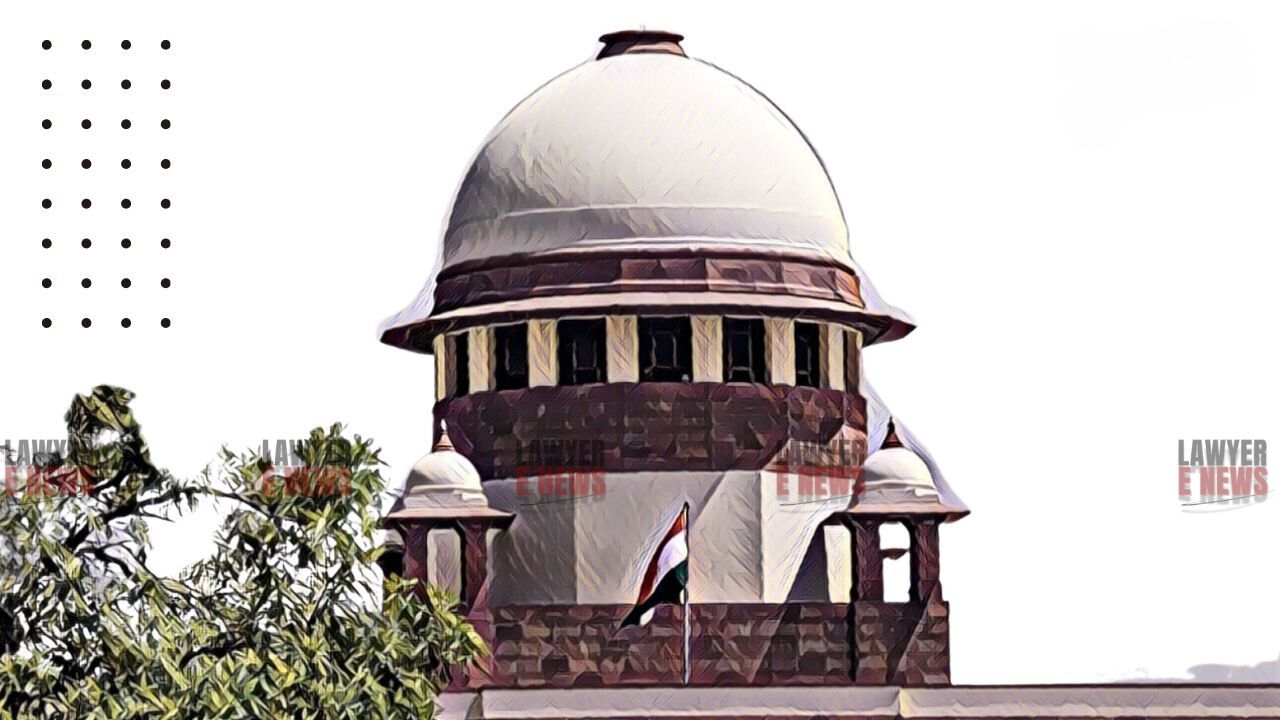-
by Admin
16 February 2026 4:21 AM



"A Magistrate is Not a Mere Post Office; Orders Under Section 156(3) Must Be Reasoned" - Supreme Court of India delivered a significant ruling on the scope and limitations of a Magistrate’s power under Section 156(3) of the Code of Criminal Procedure (Cr.P.C.). The Court set aside the High Court’s affirmation of a Magistrate’s direction for police investigation, holding that mechanical orders under Section 156(3) CrPC, without proper judicial scrutiny, are legally unsustainable.
Emphasizing that before directing a police investigation under Section 156(3) CrPC, a Magistrate must apply his judicial mind to ascertain whether the allegations prima facie disclose a cognizable offence, the Court further examined the impact of the newly enacted Bharatiya Nagarik Suraksha Sanhita, 2023 (BNSS), which introduces stricter procedural safeguards in ordering investigations.
The case originated from a complaint filed by Advocate Nitin Devidas Kubade against Om Prakash Ambadkar, a police officer, alleging commission of offences under Sections 323, 294, 500, 504, and 506 of the Indian Penal Code (IPC). The complainant contended that despite approaching the Superintendent of Police (SP), Yavatmal, the police refused to register an FIR. Consequently, he moved an application before the Judicial Magistrate First Class (JMFC), Digras, under Section 156(3) CrPC, seeking a direction for police investigation.
The Magistrate allowed the application and directed the police to register an FIR, holding that Section 294 IPC is a cognizable offence. This order was challenged before the Bombay High Court, Nagpur Bench, but the High Court upheld the Magistrate’s direction, rejecting the appellant’s petition under Section 482 CrPC. Aggrieved by this, Om Prakash Ambadkar approached the Supreme Court.
The Supreme Court underscored that a Magistrate cannot mechanically direct police investigation under Section 156(3) CrPC without first ascertaining whether the allegations disclose a cognizable offence. Referring to Ramdev Food Products (P) Ltd. v. State of Gujarat, (2015) 6 SCC 439, the Court reiterated that directions under Section 156(3) CrPC should be issued only after the Magistrate has applied his mind and that orders must reflect judicial scrutiny to prevent frivolous complaints. The Court found that in this case, the Magistrate failed to conduct any judicial assessment before ordering police investigation and concluded that such mechanical orders are legally unsustainable.
On the issue of whether an offence under Section 294 IPC was made out, the Court held that Section 294 IPC, which penalizes obscene acts or words in public places, requires a lascivious element arousing sexual thoughts or feelings. Mere abusive, humiliating, or defamatory language does not amount to obscenity under Section 294 IPC. Quoting from N.S. Madhanagopal v. K. Lalitha, (2022) 17 SCC 818, the Court observed that to prove an offence under Section 294 IPC, mere utterance of abusive words is insufficient and that the words must have an obscene tendency to deprave or corrupt. Since no such elements were present in the allegations, the Court held that no offence under Section 294 IPC was made out.
On the allegations under Sections 504 and 506 IPC, the Court examined whether the allegations constituted criminal intimidation under Section 506 IPC and intentional insult with intent to provoke breach of peace under Section 504 IPC. Citing Mohammad Wajid v. State of U.P., Criminal Appeal No. 2340/2023, the Court stated that mere abusive language does not amount to an offence under Section 504 IPC unless it was intended to provoke a breach of peace. Similarly, for Section 506 IPC, the Court noted that criminal intimidation requires an intention to cause alarm and that mere threats without intent do not constitute an offence. Since no intent to provoke violence or cause alarm was established, the Court held that no offences under Sections 504 and 506 IPC were made out.
Regarding the offence of defamation under Section 500 IPC, the Court emphasized that defamation is a non-cognizable offence and that the Magistrate erred in directing police investigation under Section 156(3) CrPC for a non-cognizable offence. The Court noted that this aspect was overlooked even by the High Court and reflected a serious legal error on the Magistrate’s part.
Strongly criticizing the lack of judicial scrutiny, the Court held that a Magistrate is not a mere post office and that orders under Section 156(3) must be based on judicial reasoning to ensure that frivolous complaints do not lead to unwarranted criminal investigations.
Impact of Bharatiya Nagarik Suraksha Sanhita, 2023 (BNSS)
The Court also examined the new procedural safeguards introduced under Section 175 of the BNSS, which replaces Section 156(3) CrPC. The key changes include a mandatory requirement that before approaching a Magistrate, the complainant must first apply to the Superintendent of Police (SP) and submit an affidavit, a judicial inquiry by the Magistrate before ordering an investigation, and additional safeguards for public servants. The Court held that these new provisions codify the judicial safeguards established through case law and aim at preventing abuse of process.
The Supreme Court allowed the appeal, setting aside both the Magistrate’s order directing investigation and the High Court’s affirmation of the same. The Court concluded that no prima facie case was made out against the appellant and that the continuance of investigation would amount to an abuse of process. Accordingly, the police investigation was quashed, reinforcing the importance of judicial application of mind before ordering investigations under Section 156(3) CrPC.
Date of Decision: January 16, 2025
